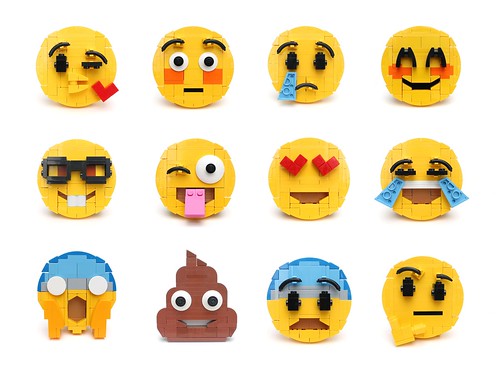Podcast: Play in new window | Download
Subscribe: iTunes | Android | RSS

Today’s interview is with Dr. Simon Moore (BSc, PhD, CPsychol), a Chartered business and consumer psychologist who specialises in uncovering emotional and personality influences on behaviour. He is also Management Director of Innovationbubble, a new type of insights agency that, using psychological insights and methodologies, investigates the real reasons that customers behave the way that they do and what brands should be doing about it. Simon joins me today to talk about the role of emotions in customer experience and whether firms should be designing their experiences to achieve certain emotions or if they should just be more mindful of their customers emotions.
This interview follows on from my recent interview – The connection between Comic-Con, Escape The Room and world-class customer service – Interview with Liz Graham of Wayfair – and is number 203 in the series of interviews with authors and business leaders that are doing great things, providing valuable insights, helping businesses innovate and delivering great service and experience to both their customers and their employees.
Here’s the highlights of my interview with Simon:
- Simon has some really interesting past experience working as a psychologist which includes, at one point, working in Cuba with dolphins.
- Innovationbubble use psychological insights and methodologies to unpick a lot of issues that businesses face around purchase, engagement, loyalty etc.
- Many of these issues can’t be unpicked through traditional methods like surveys and interviews as there is often a difference between what people tell you and what they do.
- Sometimes even we, ourselves, are not fully aware of why we do or say things.
- Emotions are part of our behaviour.
- 70-80% of all of our decisions are emotionally underpinned.
- We like to think we are rational but our emotions drive our decisions.
- It’s a good thing that people are starting to recognise that emotions are pivotal to their decision making and customer experience.
- Big data people want to measure emotions. To that Simon says ‘good luck’. He says this because we have had 100 years of psychology as a science and until now psychologists can’t measure emotions yet.
- This has implications for ratings scores, like NPS. For example: Emotionally, what is the difference between scoring a firm an 8 or a 9?
- Simon’s advice for brands: Just be more pleasant to people.
- If you can increase your ‘pleasant score’ you are more likely to be successful.
- The challenge is that many firms are not asking the right questions and don’t have a clear idea about what emotions are relevant to their particular situation.
- Simon cites a pharma example where surveyed cardiologists said that they wouldn’t use a drug because it was expensive. However, digging beneath that reasoning they found that the cardiologists weren’t going to use the new drug because many of them thought their patients were inactive or ‘couch potatoes’ and that the drug would have very little effect given their assumed level of inactivity.
- Whilst surveys can be useful, we shouldn’t rely on them too much.
- Behavioural action is underpinned by the non-rational or emotions.
- People are not very good at expressing or describing what they feel or being aware of what they are feeling in the moment.
- Whilst we may not be able to measure emotions, we can still work with emotions i.e. what emotions are here and what ones are irrelevant.
- Many organisations will shy away from emotions because they don’t understand them.
- If you can be aware of what emotions are important then you can play those up in your comms, product strategy and positioning.
- Simon believes that there are problems with the use of behavioural science and nudge theory as much of it’s deployment is focusing on changing peoples behaviour and that’s not always good.
- Rather, companies should be focusing on understanding what the customer intuitively wants or needs and then the company should be changing or modifying what it does to accommodate them.
- Our brain can only deal with four things at one time. Using this idea, this has huge implications for the design of most websites, which are way too complicated.
- Our brain likes to make choices as it helps us understand who we are and our self worth. Therefore, making things ‘frictionless’ can be problematic.
- We like challenges and solving problems so reducing that or completely eliminating that removes large elements of the ‘experience’, which can stop us establishing patterns, it doesn’t help us build our self-worth and inhibits our ability to engage.
- People should read EM Forster’s The Machine Stops if they want a 1909 Sci-Fi view of what a ‘frictionless’ world might look like.
- If you put effort into something then it is more valuable to you.
- Whilst customers will say that they want things to be easy and friction-free, companies should focus on streamlining and relevancy not simplicity or friction-free.
- Simon cites a couple of examples of work that they have done with clients to bring these insights to life:
- The first was with a large bank who’s previous research had told them that customers don’t trust banks and, and such, they focused much of their comms with their customers on developing their trust. However, after a year their churn rates had gone up by 7%. Innovationbubble was then invited in to find out what was going on. What they found was that trust was, in fact, the issue. But, the real issue was that customers did trust the bank intuitively but they didn’t trust themselves when it came to engaging with the bank online or when using their app and that they were doing ‘it’ or using it in the right way. In reality, customers didn’t want to admit that they didn’t know what they were doing. Therefore, the bank changed all of their comms to reflect this and a year later they had a 15% reduction in churn and a 12% increase in new market growth as no other bank was ‘talking’ their customers language.
- The second was with Thomas Cook who had noticed a drop in customer retention but they didn’t feel that traditional market research techniques were successfully identifying the problem. They asked Innovationbubble to explore the real reasons for the customer churn. What they found was there was a difference between what customers say they want from a holiday (adventure, excitement and exploration) and what customers are psychologically motivated by (comfort, security and safety). What they found was that it was the basic things (hygiene, the towels, pillows and reception staff) that were critical in influencing holiday satisfaction. In particular, they found that the biggest predictor of whether German holidaymakers had a good holiday or not was related to their perception of the problem solving ability of receptionist at the hotel that they were staying at. In addition, the biggest predictors of satisfaction for UK holidaymakers were based on how comfortable the pillows were and how fluffy the towels were. As a result, if the holiday firms made sure these ‘hygiene factors’ were in place they also found that the holidaymakers were more likely to be more adventurous, venture out further from the hotel and spend more on ancillary trips.
- They also found that when it comes to customer engagement customers are most positive and receptive when they are anticipating the holiday. However, this is a period that is mostly ignored in the customer journey, particularly in the travel industry, and this insight gave Thomas Cook a significant opportunity to increase brand and product engagement.
- Simon would advise firms to do more behavioural insight work before embarking on big new projects even if it is only to act as a reality/sense check on their plans and so that they take into account any behavioural/emotional elements that they may have overlooked.
- Most of the stuff that we do is driven by our desire to make us feel good or avoid stress and hurt. We should therefore take this into account when designing and delivering our customer experience or making future decisions concerning that.
- Ask yourself the question: What are the emotional benefits of your brand or organisation (and be honest)? For example, do you really want your customers to be excited or would you rather they be pleased?
- Simon thinks that when it comes to wow service or experience people often think they have to do something big or magical. However, his view is that it is not about big or magical things but that it is much more cumulative. Therefore, it is about the lots of little things that you do that all gel together. And that is what creates wow.
- Do get in touch with Simon and the folks at Innovationbubble to discuss how you can leverage behavioural insights in your business.
About Simon (Taken from his Innovationbubble bio)
 Dr. Simon Moore (BSc, PhD, CPsychol) is a Chartered Business and Consumer Psychologist and the Project Design & Management Director (UK) of Innovationbubble, a new type of insights agency that, using psychological insights and methodologies, investigates the reasons that customers behave the way that they do and what brands should be dong about it.
Dr. Simon Moore (BSc, PhD, CPsychol) is a Chartered Business and Consumer Psychologist and the Project Design & Management Director (UK) of Innovationbubble, a new type of insights agency that, using psychological insights and methodologies, investigates the reasons that customers behave the way that they do and what brands should be dong about it.
Simon specialises in uncovering emotional and personality influences on behaviour. Simon started his career as a behavioural psychologist working on survival and conservation with dolphins and apes. Simon has advised well-known global brands (in the financial services, retail, leisure, food and fashion sectors) in relation to deploying psychological intervention strategies in order to improve consumer brand experience/engagement. His favourite insight projects have been with rebranding work with Guidedogs and in the financial services sector on trust and advocacy.
He has acted as an advisor to the UK and US governments. Simon is an author and regularly presents at international conferences on the psychology of behaviour in relation to consumer experience. He regularly appears on the TV and radio and in the press discussing consumer psychology and behavioural intervention. His favourite line to clients is ‘Who knows what we will find – all I know is that it will be important!’.
You can find out more about Innovationbubble here, say Hi to them on Twitter at @Innobub and do connect with Simon on LinkedIn here.
Photo Credit: Ochre Jelly Flickr via Compfight cc



